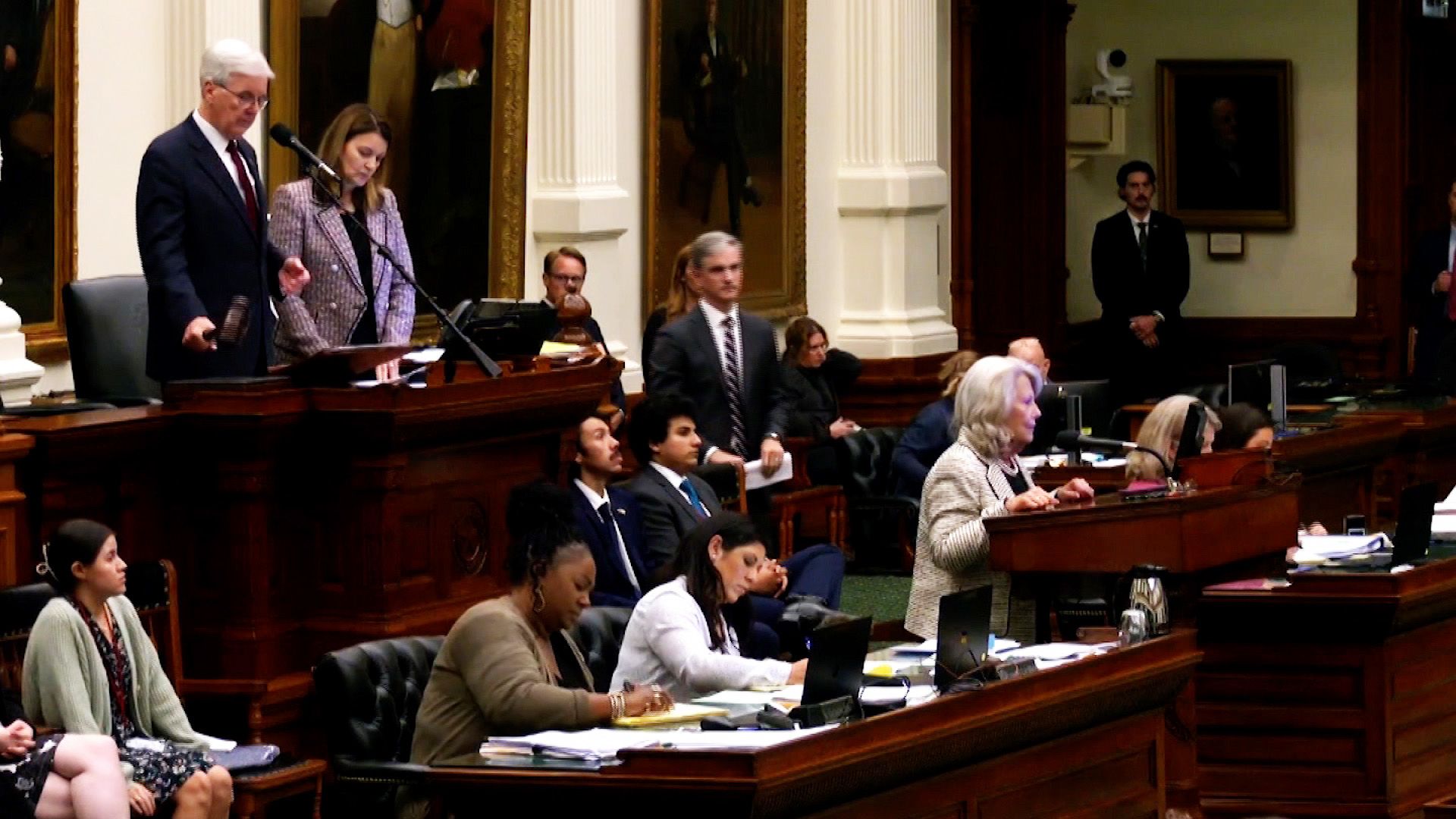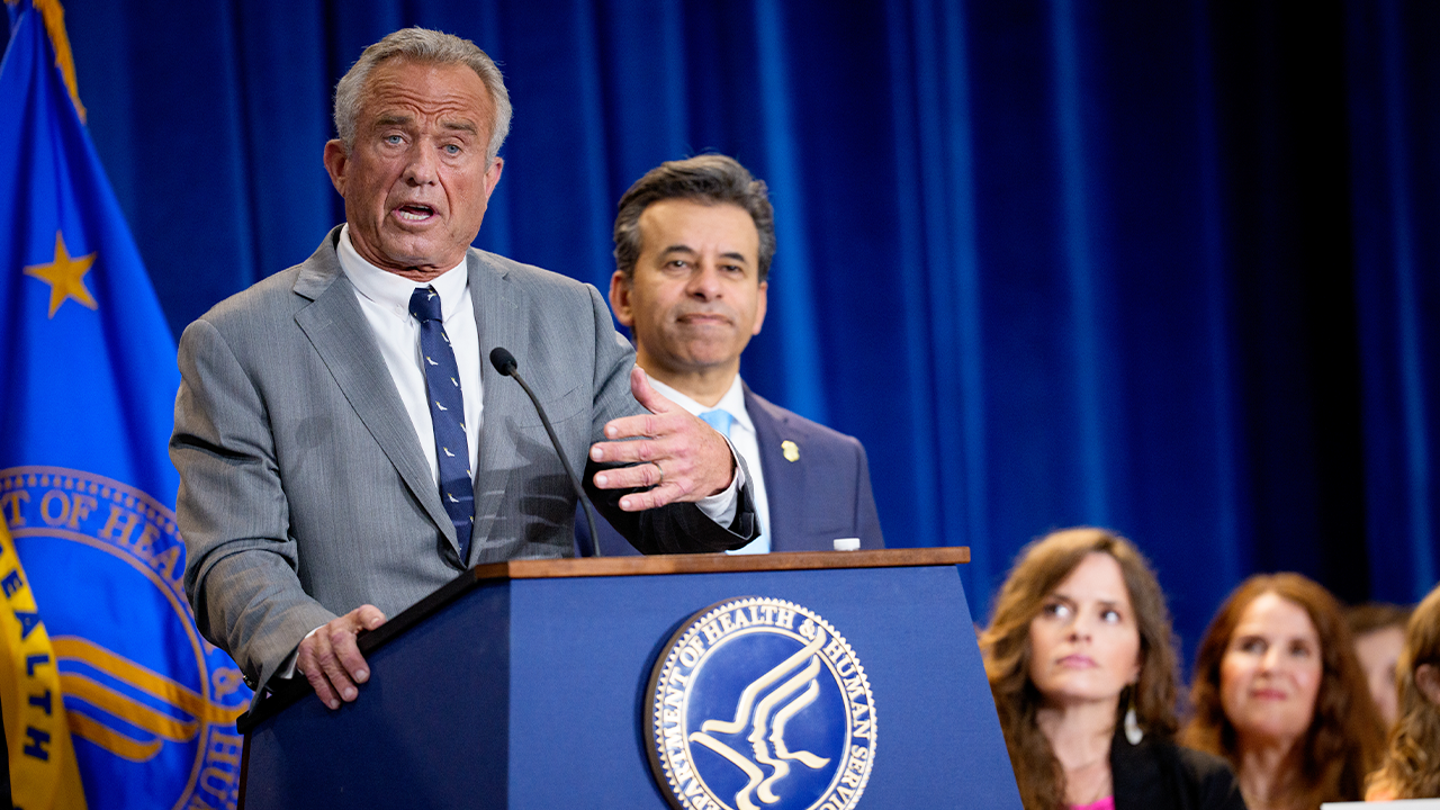
FBI conducts search at Trump critic John Bolton’s home and office as part of resumed national security investigation
Entities mentioned:
- John Bolton: Self-preservation, Professional pride, Righteousness
- Donald Trump: Power, Control, Revenge
- FBI: Duty, Justice, Control
- Justice Department: Justice, Duty, Control
- JD Vance: Loyalty, Duty, Influence
- Kash Patel: Power, Loyalty, Control
Article Assessment:
Credibility Score: 65/100
Bias Rating: 55/100 (Center)
Sentiment Score: 30/100
Authoritarianism Risk: 65/100 (Authoritarian Tendencies)
Bias Analysis:
The article presents multiple perspectives and cites various sources, including both Trump administration officials and critics. However, there's a slight lean towards framing the event as potentially politically motivated, which may reflect a centrist to slightly left-leaning bias.
Key metric: Rule of Law Index
As a social scientist, I analyze that this article highlights a concerning trend of potential politicization of law enforcement agencies. The renewed investigation into John Bolton, a vocal critic of President Trump, raises questions about the use of government power against political opponents. This action could significantly impact the Rule of Law Index, particularly in areas of constraints on government powers and absence of corruption. The public nature of the search and the social media activity of top FBI officials further suggest a departure from standard investigative practices, potentially eroding public trust in law enforcement institutions. The timing and context of this investigation, following Bolton's criticism of Trump's foreign policy, particularly regarding Russia and Ukraine, add to concerns about potential abuse of power and selective enforcement of laws.

READ: Transcript of the Justice Department’s interview with Ghislaine Maxwell
Entities mentioned:
- Department of Justice: Justice, Duty, Transparency
- Todd Blanche: Professional pride, Duty, Curiosity
- Ghislaine Maxwell: Self-preservation, Obligation, Wariness
- Jeffrey Epstein: Power, Greed, Control
- Donald Trump: Power, Influence, Recognition
Article Assessment:
Credibility Score: 75/100
Bias Rating: 50/100 (Center)
Sentiment Score: 45/100
Authoritarianism Risk: 25/100 (Generally Democratic)
Bias Analysis:
The article presents factual information without apparent partisan slant. It neutrally reports on the release of the transcript and the circumstances surrounding the interview, avoiding inflammatory language or political commentary.
Key metric: Public Trust in Government Institutions
As a social scientist, I analyze that this release of the interview transcript with Ghislaine Maxwell by the Department of Justice is likely to have a significant impact on public trust in government institutions. The transparency shown by releasing this document may help to improve public perception of the DOJ's commitment to accountability. However, the limited immunity granted to Maxwell and her subsequent transfer to a minimum-security prison may be viewed skeptically by some, potentially undermining trust. The involvement of a former Trump lawyer in the interview adds a political dimension that could further complicate public perception, depending on how it's interpreted across the political spectrum.

Texas nears final vote on new congressional maps as partisan redistricting race escalates
Entities mentioned:
- Texas Senate: Power, Control, Loyalty
- Texas Republicans: Ambition, Competitive spirit, Power
- Carol Alvarado: Determination, Justice, Moral outrage
- Donald Trump: Power, Influence, Control
- Greg Abbott: Power, Control, Loyalty
- California Democrats: Competitive spirit, Power, Justice
- Gavin Newsom: Ambition, Competitive spirit, Justice
- White House: Power, Control, Influence
- Kathy Hochul: Competitive spirit, Power, Justice
- Todd Hunter: Loyalty, Power, Competitive spirit
- Catherine Blakespear: Justice, Moral outrage, Competitive spirit
- Dustin Burrows: Control, Power, Loyalty
- Nicole Collier: Determination, Justice, Moral outrage
- Gene Wu: Justice, Determination, Moral outrage
- Lloyd Doggett: Self-preservation, Professional pride, Duty
- Charlie Geren: Control, Power, Loyalty
Article Assessment:
Credibility Score: 75/100
Bias Rating: 55/100 (Center)
Sentiment Score: 35/100
Authoritarianism Risk: 65/100 (Authoritarian Tendencies)
Bias Analysis:
The article presents perspectives from both Republican and Democratic sides, quoting various politicians and explaining their actions. While it leans slightly towards criticizing Republican efforts, it also details Democratic counter-measures, maintaining a relatively balanced approach.
Key metric: Congressional Seat Distribution
As a social scientist, I analyze that this article highlights the intensifying partisan struggle over redistricting in the United States, particularly in Texas and California. The actions taken by both Republican and Democratic-led state legislatures demonstrate a clear attempt to manipulate congressional districts to gain political advantage. This process, often referred to as gerrymandering, has significant implications for the balance of power in the U.S. House of Representatives. The unusual mid-decade redistricting efforts in Texas and California's response indicate an escalation in the use of this tactic, potentially setting a precedent for other states to follow. This could lead to increased political polarization, reduced electoral competitiveness, and a disconnect between the popular vote and seat distribution in Congress. The legal challenges mentioned in the article suggest that the judiciary may play a crucial role in determining the final outcome of these redistricting efforts, highlighting the complex interplay between state legislatures, voters, and the court system in shaping American democracy.

Inside the Trump team’s debate on what to release from the Epstein files
Entities mentioned:
- Trump administration: Control, Self-preservation, Influence
- Jeffrey Epstein: Power, Greed, Control
- Todd Blanche: Duty, Professional pride, Justice
- Ghislaine Maxwell: Self-preservation, Loyalty, Influence
- Department of Justice: Duty, Justice, Obligation
- House Oversight Committee: Justice, Duty, Righteousness
- Donald Trump: Control, Self-preservation, Influence
- John Bolton: Revenge, Recognition, Influence
Article Assessment:
Credibility Score: 75/100
Bias Rating: 45/100 (Center)
Sentiment Score: 35/100
Authoritarianism Risk: 40/100 (Generally Democratic)
Bias Analysis:
The article presents multiple perspectives and cites various sources within the administration, suggesting a balanced approach. While it focuses on Trump administration decision-making, it also includes critical viewpoints and mentions potential controversies, maintaining a relatively neutral stance.
Key metric: Public Trust in Government
As a social scientist, I analyze that this article reveals the complex interplay between political strategy, public perception, and the handling of sensitive information in a high-profile case. The Trump administration's deliberations over releasing Epstein-related materials demonstrate a calculated approach to controlling the narrative and managing potential fallout. This strategic maneuvering impacts public trust in government, as it highlights the tension between transparency and potential cover-ups. The administration's focus on 'taking control of the narrative' suggests a prioritization of image management over full disclosure, which could erode public confidence. However, the eventual decision to release some materials, coupled with Trump's call for openness, may partially mitigate this effect. The ongoing involvement of the House Oversight Committee adds a layer of checks and balances, potentially boosting public trust in the process of accountability.

Hegseth fires general whose agency’s intel assessment of damage from Iran strikes angered Trump
Entities mentioned:
- Pete Hegseth: Power, Control, Loyalty
- Donald Trump: Power, Control, Self-preservation
- Jeffrey Kruse: Professional pride, Duty, Integrity
- Nancy Lacore: Duty, Professional pride
- Milton Sands: Duty, Professional pride
- Benjamin Netanyahu: Power, Influence
- Mark Warner: Justice, Duty, Concern
- Jim Himes: Justice, Transparency, Concern
Article Assessment:
Credibility Score: 75/100
Bias Rating: 40/100 (Lean Left)
Sentiment Score: 25/100
Authoritarianism Risk: 70/100 (Authoritarian Tendencies)
Bias Analysis:
The article leans slightly left, evidenced by its critical tone towards the Trump administration's actions and the prominence given to Democratic lawmakers' concerns. However, it does present factual information and includes multiple perspectives.
Key metric: National Security and Intelligence Integrity
As a social scientist, I analyze that this article highlights a concerning trend of politicization within the US intelligence and military leadership. The firing of top officials, particularly those whose assessments contradict the administration's narrative, suggests a prioritization of loyalty over professional expertise and objective analysis. This could lead to a degradation of intelligence quality and military effectiveness, potentially compromising national security. The pattern of dismissals, coupled with budget cuts and organizational changes, indicates a systematic attempt to reshape these institutions to align with political goals rather than maintaining their independent advisory roles. This shift could have long-term implications for the credibility and functionality of US intelligence and defense capabilities.

Judge halts implementation of some Trump administration changes that would chip away at Obamacare
Entities mentioned:
- Judge Brendan Hurson: Justice, Duty, Righteousness
- Trump administration: Control, Power, Influence
- Centers for Medicare and Medicaid Services: Control, Professional pride, Duty
- Democratic-led cities: Justice, Moral outrage, Obligation
- Skye Perryman: Justice, Determination, Moral outrage
Article Assessment:
Credibility Score: 75/100
Bias Rating: 55/100 (Center)
Sentiment Score: 45/100
Authoritarianism Risk: 25/100 (Generally Democratic)
Bias Analysis:
The article presents a balanced view of the court decision, including perspectives from both sides. While it gives more space to arguments supporting the judge's decision, it also includes the Trump administration's stated goals for the changes.
Key metric: Healthcare Coverage Rate
As a social scientist, I analyze that this judicial decision has significant implications for the Healthcare Coverage Rate in the United States. The judge's ruling blocks several Trump administration changes to the Affordable Care Act (ACA) that could have led to an estimated 1.8 million Americans losing health insurance. This decision maintains the status quo for key aspects of the ACA, preventing potential disruptions in coverage and access to healthcare. The ruling emphasizes the importance of affordable healthcare coverage and its impact on public health and city budgets. This legal intervention highlights the ongoing tension between efforts to modify the ACA and the goal of maintaining widespread health insurance coverage. The case also underscores the role of the judiciary in shaping healthcare policy and the complex interplay between federal regulations and existing laws.

Kilmar Abrego Garcia has been released from criminal custody, 5 months after he was unlawfully deported
Entities mentioned:
- Kilmar Abrego Garcia: Justice, Freedom, Self-preservation
- Trump administration: Power, Control, Righteousness
- CASA: Justice, Moral outrage, Unity
- Sean Hecker: Justice, Professional pride, Duty
- Federal prosecutors: Duty, Justice, Control
- Judge Waverly Crenshaw: Justice, Duty, Righteousness
- Judge Paula Xinis: Justice, Duty, Righteousness
- ICE: Control, Duty, Security
- Simon Sandoval-Moshenberg: Justice, Moral outrage, Duty
Article Assessment:
Credibility Score: 75/100
Bias Rating: 40/100 (Lean Left)
Sentiment Score: 35/100
Authoritarianism Risk: 25/100 (Generally Democratic)
Bias Analysis:
The article leans slightly left, emphasizing the perspective of Abrego Garcia and his attorneys while presenting government actions critically. However, it does include multiple viewpoints and court decisions, maintaining a degree of balance.
Key metric: Immigration Enforcement and Due Process
As a social scientist, I analyze that this case highlights significant issues in the U.S. immigration system, particularly regarding due process and the potential for wrongful deportation. The article demonstrates a complex interplay between judicial, executive, and advocacy entities, each with distinct motivations. The case of Kilmar Abrego Garcia reveals tensions between strict immigration enforcement policies and constitutional rights, potentially impacting public trust in government institutions and the fairness of the immigration system. The involvement of multiple federal judges issuing contradictory rulings underscores the complexity of immigration law and the potential for conflicting interpretations. This case may serve as a precedent for similar cases, potentially influencing future immigration enforcement practices and policies.

‘Militarization of politics’: How bucolic Bethesda woke up to FBI search on John Bolton
Entities mentioned:
- John Bolton: Self-preservation, Justice, Professional pride
- Donald Trump: Power, Control, Revenge
- FBI: Duty, Justice, Professional pride
- Robert Hill: Curiosity, Indignation, Moral outrage
- George Conway: Moral outrage, Influence, Recognition
- Bethesda residents: Curiosity, Anxiety, Wariness
Article Assessment:
Credibility Score: 70/100
Bias Rating: 55/100 (Center)
Sentiment Score: 30/100
Authoritarianism Risk: 65/100 (Authoritarian Tendencies)
Bias Analysis:
The article presents multiple perspectives, including those critical of the search and Trump administration. However, it gives more space to voices opposing the search, potentially skewing reader perception.
Key metric: Public Trust in Government Institutions
As a social scientist, I analyze that this event significantly impacts public trust in government institutions. The FBI's search of a former high-ranking official's residence, especially one who has been critical of the current administration, raises concerns about potential political motivations behind law enforcement actions. This incident, occurring in an affluent suburb known for housing political elites, brings the abstract concept of political conflict into a tangible, local context for many observers. The varied reactions from residents, ranging from curiosity to outrage, reflect a broader societal divide in perceptions of government actions. The removal of Bolton's security detail earlier, despite known threats, further complicates the public's understanding of government priorities and protection of former officials. This event may lead to increased skepticism about the impartiality of law enforcement agencies and heighten concerns about the potential weaponization of government institutions for political purposes.

Texas Republicans approve new congressional maps as partisan redistricting race escalates
Entities mentioned:
- Texas Republicans: Power, Control, Competitive spirit
- Donald Trump: Power, Influence, Legacy
- Greg Abbott: Power, Loyalty, Control
- Dan Patrick: Loyalty, Power, Influence
- California Democrats: Competitive spirit, Power, Justice
- Gavin Newsom: Power, Competitive spirit, Justice
- Kathy Hochul: Competitive spirit, Power, Influence
- Todd Hunter: Power, Loyalty, Competitive spirit
- Catherine Blakespear: Justice, Competitive spirit, Moral outrage
- Phil King: Power, Loyalty, Competitive spirit
- Texas Democrats: Justice, Moral outrage, Self-preservation
- Dustin Burrows: Control, Power, Determination
- Nicole Collier: Moral outrage, Self-respect, Determination
- Gene Wu: Justice, Determination, Moral outrage
- Carol Alvarado: Justice, Determination, Moral outrage
- Lloyd Doggett: Self-preservation, Professional pride, Duty
- Greg Casar: Self-preservation, Ambition, Professional pride
- Venton Jones: Justice, Moral outrage, Self-respect
- Charlie Geren: Duty, Control, Power
- Robert Rivas: Power, Competitive spirit, Influence
Article Assessment:
Credibility Score: 75/100
Bias Rating: 55/100 (Center)
Sentiment Score: 35/100
Authoritarianism Risk: 65/100 (Authoritarian Tendencies)
Bias Analysis:
The article presents perspectives from both Republican and Democratic actors, providing a relatively balanced view of the redistricting efforts. However, there's slightly more focus on Democratic opposition and legal challenges, which may suggest a slight center-left lean.
Key metric: Electoral Competitiveness
As a social scientist, I analyze that this article highlights a significant escalation in partisan redistricting efforts, with potential far-reaching consequences for electoral competitiveness in the United States. The actions taken by both Texas Republicans and California Democrats represent a departure from normal redistricting processes, occurring mid-decade rather than following the census. This trend towards more frequent and aggressive redistricting could lead to increased polarization, reduced electoral competitiveness, and a weakening of democratic norms. The use of redistricting as a tool for partisan advantage may result in less representative government and diminished voter faith in the electoral system. The involvement of state legislatures in overriding independent commissions (as in California) also raises concerns about the erosion of checks and balances designed to ensure fair representation.

Trump-aligned legal group probes Biden-era organ transplant program over ethical concerns
Entities mentioned:
- America First Legal: Justice, Righteousness, Wariness
- Stephen Miller: Loyalty, Influence, Control
- Department of Health and Human Services: Duty, Professional pride, Security
- Centers for Medicare & Medicaid Services: Duty, Professional pride, Security
- Health Resources and Services Administration: Duty, Professional pride, Security
- Robert F. Kennedy Jr.: Righteousness, Moral outrage, Recognition
- Laura Stell: Justice, Righteousness, Professional pride
- Trump administration: Power, Control, Influence
Article Assessment:
Credibility Score: 70/100
Bias Rating: 65/100 (Lean Right)
Sentiment Score: 35/100
Authoritarianism Risk: 40/100 (Generally Democratic)
Bias Analysis:
The article leans right due to its focus on Trump-aligned groups and their concerns, as well as the 'FIRST ON FOX' label. While it presents some factual information about the organ transplant program, it gives more weight to criticisms from Trump-aligned sources.
Key metric: Healthcare System Effectiveness
As a social scientist, I analyze that this article highlights a conflict between the Biden administration's efforts to improve organ transplant access and concerns raised by Trump-aligned groups about potential ethical issues and outside influences. The investigation by America First Legal into the Increasing Organ Transplant Access Model reflects ongoing political tensions in healthcare policy. This situation could impact the Healthcare System Effectiveness metric by potentially delaying or altering the implementation of a program designed to increase organ transplant access. The controversy may lead to increased scrutiny of healthcare policies, which could either improve transparency and effectiveness or create obstacles to implementing potentially beneficial reforms. The political nature of the investigation also underscores the challenges of implementing major healthcare changes in a polarized environment.